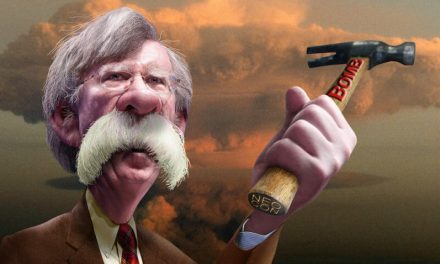Image Credits: Robin Silver.
It’s not just the wolves, grizzly bears, and bald eagles that we almost drove to extinction in this country. As Lisa Friedman reports in the New York Times, we have come close to wiping out many types of fauna and flora that were only saved by deliberate government intervention.
Ever since President Richard M. Nixon signed the Endangered Species Act into law, it has been the most essential piece of United States legislation for protecting fish, plants and wildlife, and acted as a safety net for species on the brink of extinction. The peregrine falcon, the humpback whale, the Tennessee purple coneflower and the Florida manatee all likely would have disappeared without it, scientists say.
Obviously, if it didn’t cost anyone to preserve habitats and regulate hunting, then we’d try to save everything. But there’s always some landowner somewhere who is inconvenienced by the rules and regulations we put in place to preserve the biodiversity of the country. Sometimes, they have a legitimate complaint, and there’s a process for that.
The Republicans cater to the folks who chafe at government constraints on how they can use and develop their land, and that would not have to be a bad thing if they limited themselves to being advocates for an interest group that deserves representation. What they do instead is just malicious.
The Trump administration on Monday announced that it would change the way the Endangered Species Act is applied, significantly weakening the nation’s bedrock conservation law credited with rescuing the bald eagle, the grizzly bear and the American alligator from extinction.
The changes could clear the way for new mining, oil and gas drilling, and development in areas where protected species live. The new rules will make it harder to consider the effects of climate change on wildlife when deciding whether a given species warrants protection. They would most likely shrink critical habitats and, for the first time, allow economic factors to be taken into account when making determinations.
This isn’t an example of looking out for ranchers who need some relief from a poorly thought through regulation. This isn’t a case-by-case exercise of discretion or some advocacy for the little guy who is unduly impacted in unintentional ways. It’s a flat giveaway to the large mining and timber corporations and land developers that comes at the expense of the very survival of plants and animals.
The environmental groups are predictably appalled, but they have a good reason to feel that way.
One of the most controversial changes modifies longstanding language that prohibits the consideration of economic factors when deciding whether a species should be protected.
Under the current law, such determinations must be made solely based on science, “without reference to possible economic or other impacts of determination.”
“There can be economic costs to protecting endangered species,” said Drew Caputo, vice president of litigation for lands, wildlife and oceans at Earthjustice, an environmental law organization. But, he said, “If we make decisions based on short-term economic costs, we’re going to have a whole lot more extinct species.”
Again, this isn’t about finding some compromise or mitigation or an improved appeals or exemption process for small-time operators whose livelihoods are put at potentially avoidable risk. This is a big wet kiss to major corporations. There were economic reasons to shoot bison, wolves, and grizzlies almost to the point of extinction. There is also some tradeoff to restricting land use. This is simply a way for the administration to help big donors get around the Endangered Species Act without actually convincing Congress to change the law.
It’s wrong and if properly explained will not be popular. It could be exploited politically by the Democrats even in areas of the country where the Endangered Species Act is least popular, like the Mountain West. I certainly hope they will make the effort because this is not your ordinary kind of bad policy. It will lead to extinctions, and that’s something a future administration can’t fix.







